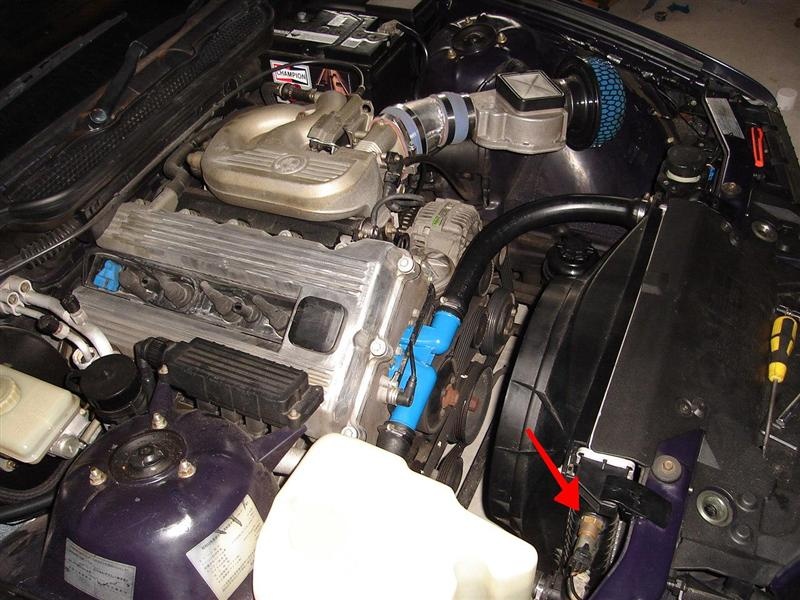Upgrading Your BMW 318ti: Leading Mods and Enhancements
Key Features to Look for When Acquiring an Engine for Automotive Applications
When considering the purchase of an engine for automotive applications, several vital attributes necessitate mindful examination to make sure ideal performance and functionality. From power and efficiency capacities to fuel adherence, efficiency, and durability to emissions criteria, each element plays a vital function in determining the engine's viability for particular automotive demands. Cost-effectiveness continues to be an essential factor in the decision-making procedure, balancing high quality with financial factors to consider. These features jointly add to the general performance and dependability of the engine, affecting the driving experience and long-term satisfaction of the individual.
Power and Performance
When picking a vehicle engine, purchasers focus on power and performance to ensure optimum driving experience and effectiveness. A well-performing engine not only delivers power successfully however also runs efficiently throughout various speed arrays and driving problems.
Customers commonly think about the engine's torque output along with its power rating. Torque, gauged in pound-feet (lb-ft) or Newton-meters (Nm), shows the engine's rotational force, affecting the car's capacity to tow, climb inclines, and accelerate from dead stop. A balance in between power and torque is essential for attaining a flexible and receptive driving experience. Furthermore, factors such as engine variation, turbocharging, and crossbreed innovations play significant functions in boosting both power and performance degrees. Ultimately, choosing an engine that supplies a potent combination of power and efficiency guarantees a effective and enjoyable driving experience. bmw 318ti.
Fuel Performance
Enhancing fuel performance is a critical consideration for consumers when assessing automobile engine alternatives. Modern engines with attributes like direct gas injection, turbocharging, and variable shutoff timing can significantly improve fuel efficiency by boosting combustion processes and lowering power loss.

Longevity and Integrity
Accomplishing durable efficiency and reliable procedure is necessary for consumers evaluating the durability and integrity of auto engines. When considering an engine for automobile applications, longevity refers to the engine's ability to hold up against wear, stress, and extreme operating problems over an extended period. Dependability, on the other hand, implies that the engine can consistently perform its designated function without unexpected breakdowns or failures.
Customers should look for engines built with top quality materials and precise engineering to make sure durability. Elements such as pistons, bearings, and crankshafts ought to be resilient to deal with the engine's power outcome without premature wear. In addition, engines furnished with sophisticated air conditioning systems, effective lubrication, and robust purification devices tend to exhibit greater levels of dependability.
Routine upkeep and adherence to manufacturer recommendations are additionally critical consider maintaining an engine's durability and integrity. By adhering to maintenance timetables, utilizing suggested liquids, and attending to any concerns immediately, customers can optimize the life expectancy and efficiency of their automotive engines. Eventually, focusing on resilience and reliability in engine selection can lead to a much more rewarding ownership experience with fewer unanticipated interruptions.
Discharges Compliance
Guaranteeing directory conformity with discharges guidelines is a vital facet of evaluating automobile engines for ecologically mindful consumers. With enhancing issues about air quality and ecological effect, strict exhausts standards have been placed in place globally to reduce harmful contaminants released into the environment. When acquiring an engine for auto applications, it is necessary to consider its exhausts compliance to decrease the carbon footprint and comply with legal needs.
Modern engines are furnished with innovative emission control innovations such as catalytic converters, exhaust gas recirculation (EGR) systems, and careful catalytic decrease (SCR) to minimize hazardous exhaust gases like nitrogen oxides (NOx), carbon monoxide (CO), and hydrocarbons (HC) These systems play an important duty in making sure that the engine meets the defined emissions standards and operates within permissible restrictions.

Cost-effectiveness
When taking into consideration vehicle engine purchases, assessing cost-effectiveness is paramount for customers looking for both performance and value. It includes the general expenses related to upkeep, gas consumption, and potential repair services over the engine's life expectancy.
One key element of cost-effectiveness is fuel performance. Engines that are created to make the visit the website most of gas economy can cause significant financial savings gradually, particularly for individuals that drive frequently or over lengthy ranges. In addition, considering the availability and cost of spare components and maintenance can add to the general cost-effectiveness of an engine. Making sure that maintenance and repairs are affordable and accessible can stop unforeseen monetary concerns down the line.

Verdict
To conclude, when purchasing an engine for automobile applications, it is critical to consider essential functions such as power and efficiency, gas performance, durability and reliability, emissions compliance, and cost-effectiveness. These elements are vital in making sure that the engine satisfies the demands of the car and operates efficiently in various driving conditions - bmw 318ti. Making an educated choice based upon these requirements will ultimately lead to a reliable and effective automobile engine purchase
From power and efficiency capacities to fuel efficiency, adherence, and longevity to exhausts requirements, each aspect plays a crucial duty in identifying the engine's suitability for certain automobile demands. Engines created to run on alternative gas such as electric power, crossbreed systems, or biofuels can provide better fuel economy and reduced emissions compared to traditional gas or diesel engines. Consumers must thoroughly take into consideration the fuel performance ratings and modern technologies incorporated right into automobile engines to make enlightened buying choices that align with their concerns for price savings and sustainability.
When taking into consideration an engine for automotive applications, longevity he has a good point refers to the engine's ability to hold up against wear, tension, and rough operating conditions over a prolonged period.In final thought, when acquiring an engine for automotive applications, it is vital to take into consideration essential functions such as power and efficiency, fuel performance, resilience and dependability, exhausts conformity, and cost-effectiveness.